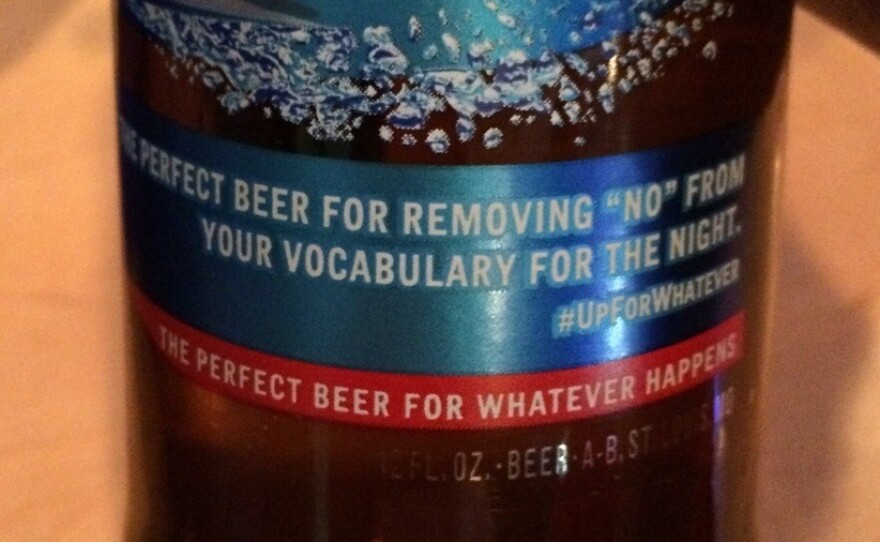The label had promised Bud Light was "the perfect beer for removing 'no' from your vocabulary for the night." But that's exactly the word that occurred to many people who say the message recalls alcohol's troublesome connection to sexual assaults.
Anheuser-Busch says the slogan is one of many messages it has printed on beer labels as part of its "UpForWhatever" ad campaign. But it acknowledges that it "missed the mark" with this one, saying that it has stopped making the label.
The move follows heavy criticism of the message via social media and on Reddit, where a photo of the label was placed beneath a not-safe-for-work title that expressed incredulousness at the message.
On Twitter, many said the slogan promotes rape culture.
Part of the Reddit discussion also turned on whether a drunk person would be able to say no to the question, "Are you OK to drive?" Poking fun at Bud Light, others on Twitter and elsewhere simply said that they say "no" to one of America's best-selling beers on a regular basis.
On Tuesday, the company issued a statement saying:
"The Bud Light Up for Whatever campaign, now in its second year, has inspired millions of consumers to engage with our brand in a positive and light-hearted way. In this spirit, we created more than 140 different scroll messages intended to encourage brand engagement. It's clear that this particular message missed the mark, and we regret it. We would never condone disrespectful or irresponsible behavior. As a result, we have immediately ceased production of this message on all bottles."
To put the discussion in a broader perspective, roughly half of all sexual assaults in America involve alcohol, according to the National Institute on Alcohol Abuse and Alcoholism:
"Conservative estimates of sexual assault prevalence suggest that 25 percent of American women have experienced sexual assault, including rape. Approximately one-half of those cases involve alcohol consumption by the perpetrator, victim, or both. Alcohol contributes to sexual assault through multiple pathways, often exacerbating existing risk factors. "Beliefs about alcohol's effects on sexual and aggressive behavior, stereotypes about drinking women, and alcohol's effects on cognitive and motor skills contribute to alcohol-involved sexual assault."
Copyright 2015 NPR. To see more, visit http://www.npr.org/.






